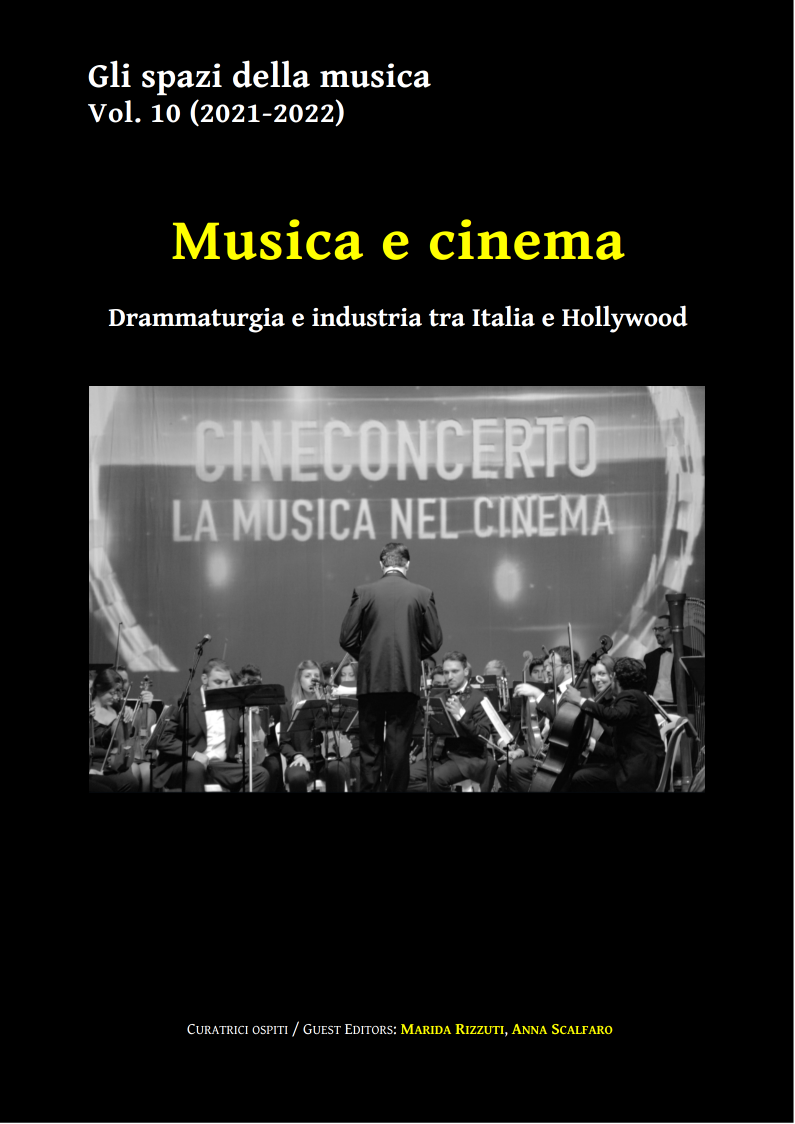Autorialità condivisa e processo compositivo a Hollywood. Weill e Ronell in One Touch of Venus
Abstract
Kurt Weill’s musical production in Hollywood during the 1940s is varied, rooted as early as the late 1930s, yet it is possible to find some recurring elements. The close collaboration - unusual and unusual by Hollywood standards - with the figure of the musical arranger. It is worth noting the practice of assigning the role of the arranger to women: in the case of Kurt Weill, the arranger who joined him in the work was Ann Ronell, the ‘Tin Pan Alley Girl’. This collaboration generated different procedures in the Studio’s system was with reflections both in the creative process of music for film and on the function of film music itself. The relationship between Weill and the Studios was not idyllic: in the crucial phase of his career (1940-1948), the composer worked intensively in the Broadway system innovating the Musical, in Hollywood he sought some possible avenues of experimentation (dramatic structures, narrative flexibility), exploiting the characteristics of cinematic language. The mediation of the arranger, Ann Ronell, was crucial in this relationship, as she took up Kurt Weill’s instances of claiming his own compositional authorship by reinterpreting them - thus also protecting the interests of the production company. The film Musical One Touch of Venus becomes an ideal case study for investigating the relationship between composer and arranger, defining a practice of shared authorship in soundtrack making.
##submission.downloads##
Pubblicato
Come citare
Fascicolo
Sezione
Licenza

Quest'opera è distribuita con licenza Creative Commons Attribuzione - Non commerciale - Non opere derivate 3.0 Unported. Tutti i diritti relativi a quanto pubblicato su «Gli spazi della musica», compreso il diritto di pubblicazione, restano di proprietà esclusiva degli autori.



